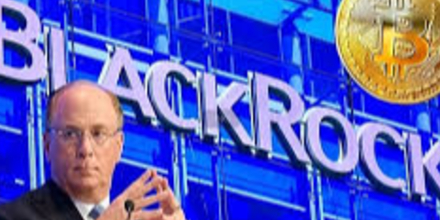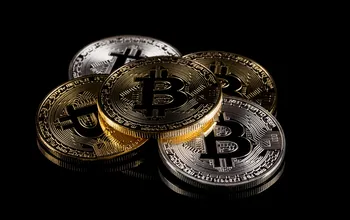Research Report|Mango Network Project Overview & MGO Token Valuation
I. Project Introduction
Mango Network is a high-performance Layer 1 blockchain developed in the Move language, positioned as a “transactional omnichain infrastructure.” Through a modular architecture, unified omnichain application framework, and a Multi-VM execution environment (compatible with MoveVM, EVM, SVM), Mango offers developers and users a unified, secure, and scalable Web3 transaction experience. Its central innovation is addressing the "user experience fragmentation" and "liquidity silo" problems found in traditional Web3, providing a one-stop infrastructure for cross-chain interaction and asset flow among heterogeneous chains.
As the industry’s first Layer 1 natively supporting omnichain liquidity pools, Mango enables developers to build true “omnichain applications”: users only need to hold a single gas token to call programs deployed on the Mango mainnet from any chain, enjoying a consistent UX and unified liquidity. This structure not only dramatically lowers cross-chain integration costs for developers and users, but also boosts liquidity reusability, enabling innovative DeFi models such as omnichain staking, borrowing, or order-book matching.
Thanks to its modular architecture, Mango has achieved real-world performance of 297,450 TPS with a settlement latency as low as 380ms. Its sub-second execution, low gas costs, and MEV-resistant design are realized via mainnet and modular contract collaboration, providing a unified application and state layer for DeFi. This makes cross-chain state management and user abstraction possible, effectively breaking the boundaries of isolated chains.
Mango Network has completed its testnet stage, delivering over 120 million on-chain transactions and 500,000+ wallet installs. Flagship ecosystem products such as BeingDex (an omnichain order-book DEX) and Being Wallet are live on devnet. The project has raised $13.5M from investors such as Kucoin Ventures, CatcherVC, and Tido Capital, with TGE and large-scale airdrops forthcoming. As a new infrastructure variable in DeFi’s evolving narrative, Mango stands at the forefront of the “omnichain paradigm” and is poised to reshape asset circulation logic and user interaction in Web3.

II. Project Highlights
1. Structural Innovation for Omnichain Applications: Mainnet Coordination + Modular Access
Mango introduces a distinctive architecture for omnichain apps: the mainnet contract handles core business logic, while other chains interact via modular contracts. This “unified control + distributed execution” avoids traditional cross-chain bridge asset risks and prevents application state fragmentation across deployments. For users, the experience is chain-agnostic: “deploy once, cover all chains,” greatly simplifying operations and reducing developer maintenance burdens.
2. Modular Design Unlocks Extreme Performance—TPS Approaching 300K
While monolithic L1s hit scalability limits under load, Mango separates execution, settlement, and consensus into composable modules for independent scaling and parallel operation. Mango has demonstrated 297,450 TPS at sub-380ms latency—all without sharding. This validates the architecture’s robustness and provides future-proofing for AVS, DA, and other module upgrades.
3. Omnichain Liquidity Pools Dramatically Increase Capital Efficiency
Most major DeFi projects face fractured liquidity across chains, forcing repeated deployments and cross-chain hops. Mango’s omnichain liquidity pools centralize liquidity management and expose it chain-wide via modular contracts—replacing the “one pool per chain” model. This enables global liquidity scheduling, logic reuse, and best-in-class efficiency for omnichain lending, flash loans, and order-matching infrastructure.
4. Move Language + Static Contract System for Security
Choosing Move as the execution base is about contract security and native asset modeling. Compared to EVM, Move offers advantages in resource definition, invocation constraints, and concurrency, making asset logic more explicit and less prone to bypass. Mango’s static execution ordering further suppresses frontrunning and MEV risks, providing foundational security for DeFi’s financial layer. From a regulatory perspective, this “contract as controller” model sets a benchmark for future L1s.
III. Valuation Outlook
As omnichain infrastructure enters validation and adoption, Mango Network—thanks to its modular architecture, Multi-VM environment, and omnichain liquidity pools—is positioned as a critical pillar for cross-chain DeFi. Despite leadership in both technology and ecosystem development, MGO’s current market pricing is well below that of comparable sector players.
At present, MGO’s circulating market cap is around $27.45M, with a token price of $0.01754. By comparison, reference projects like Sahara ($166M), Humanity Protocol ($36M), and Story Protocol ($833M) in DePIN+AI or cross-chain verticals are trading at much higher valuations, illustrating Mango’s clear potential for repricing.
If Mango delivers on mainnet launch, incentive campaigns, and CEX listings—as well as widespread “one-click omnichain” application deployments—it could see a 3–10x revaluation in circulating market cap.

IV. Tokenomics
Total Supply:
10,000,000,000 MGO (10 billion)
Allocation:
- 20% to PoS staking pool to incentivize validators and delegators, securing the network.
- 20% to the foundation for long-term strategy and ecosystem support.
- 17% to the ecosystem innovation fund for developers and project building.
- 15% to team and early contributors (vested for long-term incentives).
- 15% to investors for initial fundraising.
- 5% for testnet airdrop, rewarding early participants.
- 5% for mainnet airdrop post-launch, widening user base.
- 3% to advisors for guidance and support.
Token Utility:
MGO is Mango’s native utility token, used for:
- Gas fees for all transactions (across all VMs) on Mango Network.
- Staking by validators and delegators to participate in consensus and earn rewards.
- Participating in governance (proposals, protocol upgrades, parameter changes).
- Facilitating seamless asset transfer and dApp interactions between different VMs.

V. Team & Funding
Team:
- CEO: Benjamin Kittie—overall strategy and project lead
- CTO: David Brouwer—core architecture and Multi-VM compatibility, championing high-performance modular systems
- Ecosystem Growth Lead: Aryan Nava—developer ecosystem and cross-chain collaborations, driving application deployment and new use case adoption
Funding:
Mango Network raised $13.5M in February 2024 from Kucoin Ventures, CatcherVC, Tido Capital, Connectico Capital, Becker Ventures, Ainfra Ventures, Tfund, and Mobile Capital.
VI. Risk Disclosures
- Despite its relatively low $27M market cap, MGO’s upward re-rating depends on clear adoption drivers (airdrop releases, CEX listings, etc). Without strong narrative follow-through and demand-side leadership, price may remain stagnant even at low valuation.
- Mango’s “omnichain,” “Move,” and “modular” narratives are currently hot, but such market narratives are subject to rapid shifts in sentiment and hype cycles. If speculative capital rotates out or attention fades, liquidity and buy pressure may quickly dwindle, leaving the token vulnerable to price drops.
VII. Official Links
- Website: https://mangonet.io
- Twitter: https://x.com/MangoOS_Network
- Telegram: https://t.me/MangoOS_Network
Disclaimer: The content of this article solely reflects the author's opinion and does not represent the platform in any capacity. This article is not intended to serve as a reference for making investment decisions.
You may also like
AiCoin Daily Report (October 16)
BlackRock Targets the "Digital Wallet Era": Larry Fink Aims to Tokenize All Traditional Assets
BlackRock CEO Larry Fink stated that asset tokenization is the next revolution in financial markets, aiming to bring traditional financial assets into digital wallets. The company manages $13.5 trillion in assets, while the digital wallet market is around $4.1 trillion. BlackRock connects traditional capital markets with crypto investors through tools such as tokenized ETFs; its bitcoin trust IBIT now has more than $100 billion in assets. Summary generated by Mars AI. This summary is produced by the Mars AI model, and its accuracy and completeness are still being iteratively improved.

Crypto market shows weak conviction after Friday’s sharp drop

Brevis releases Pico Prism, enabling real-time Ethereum proofs on consumer-grade hardware